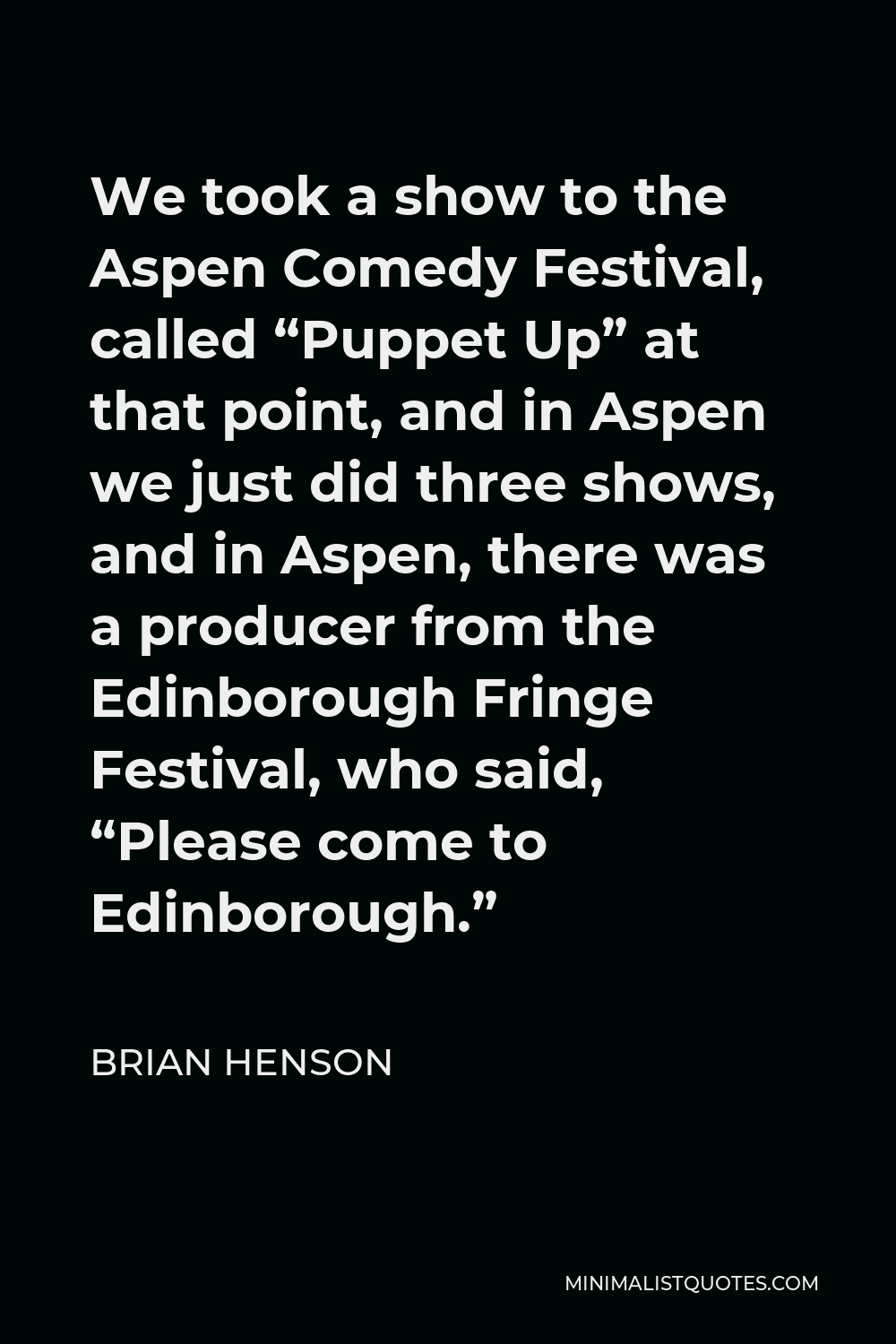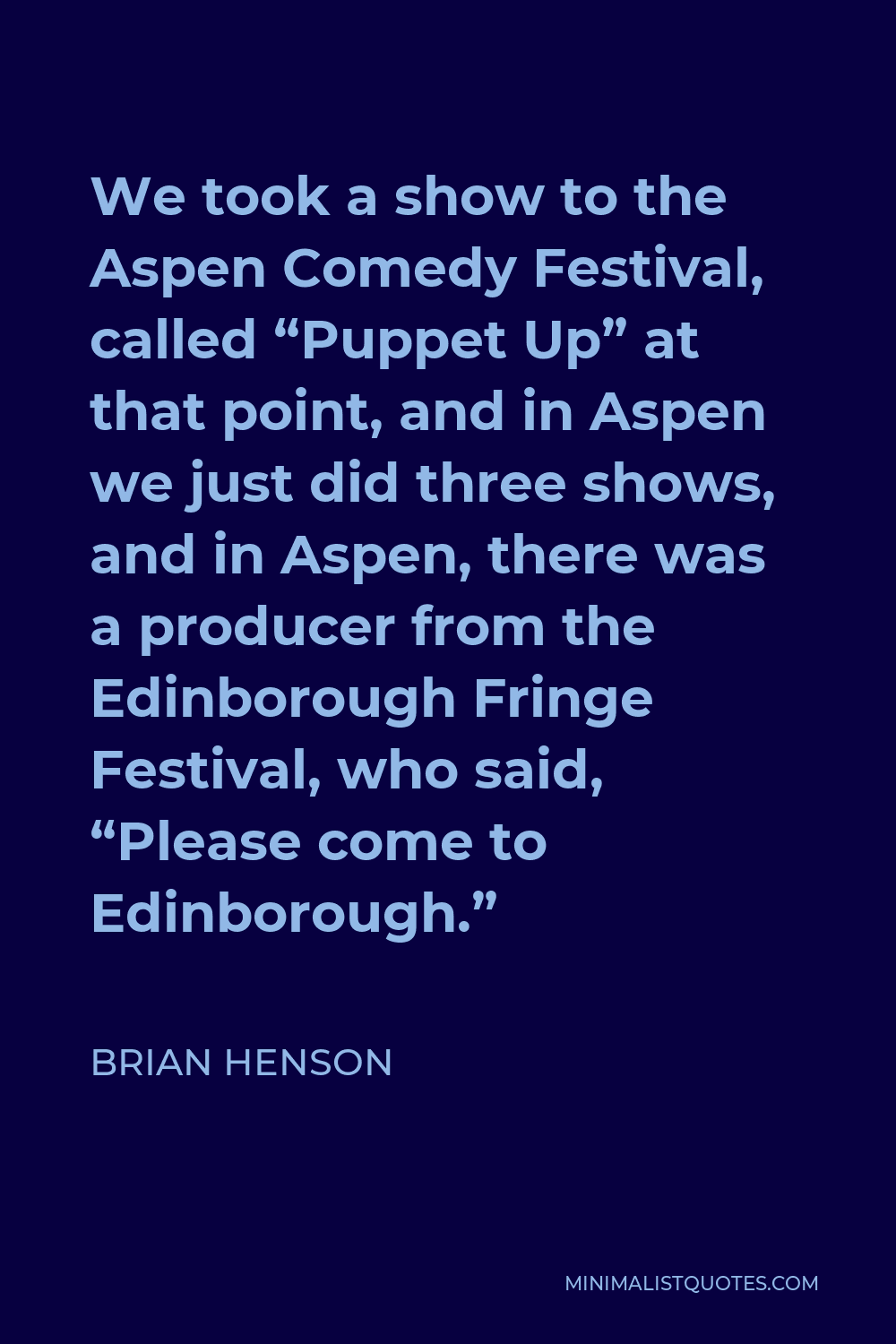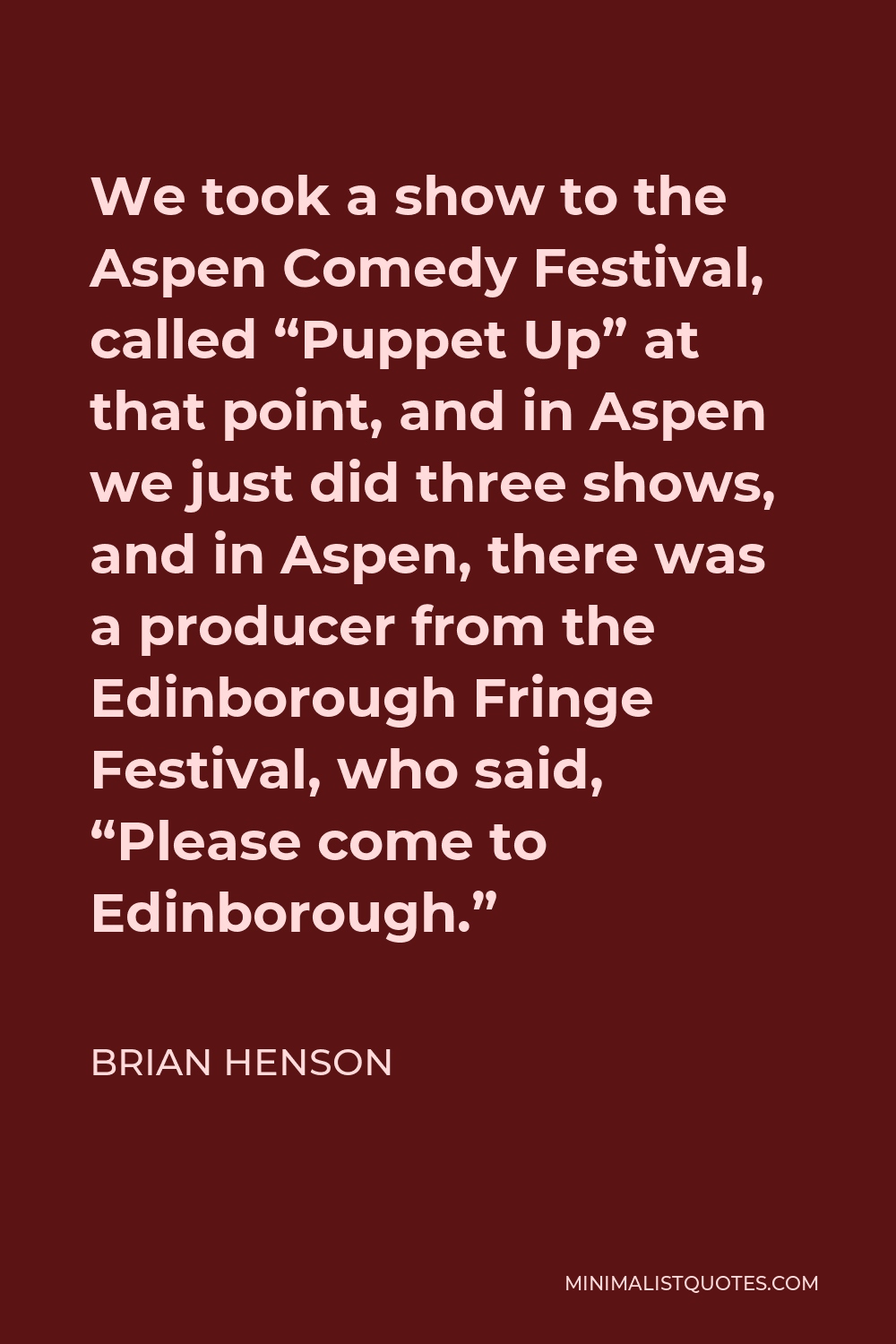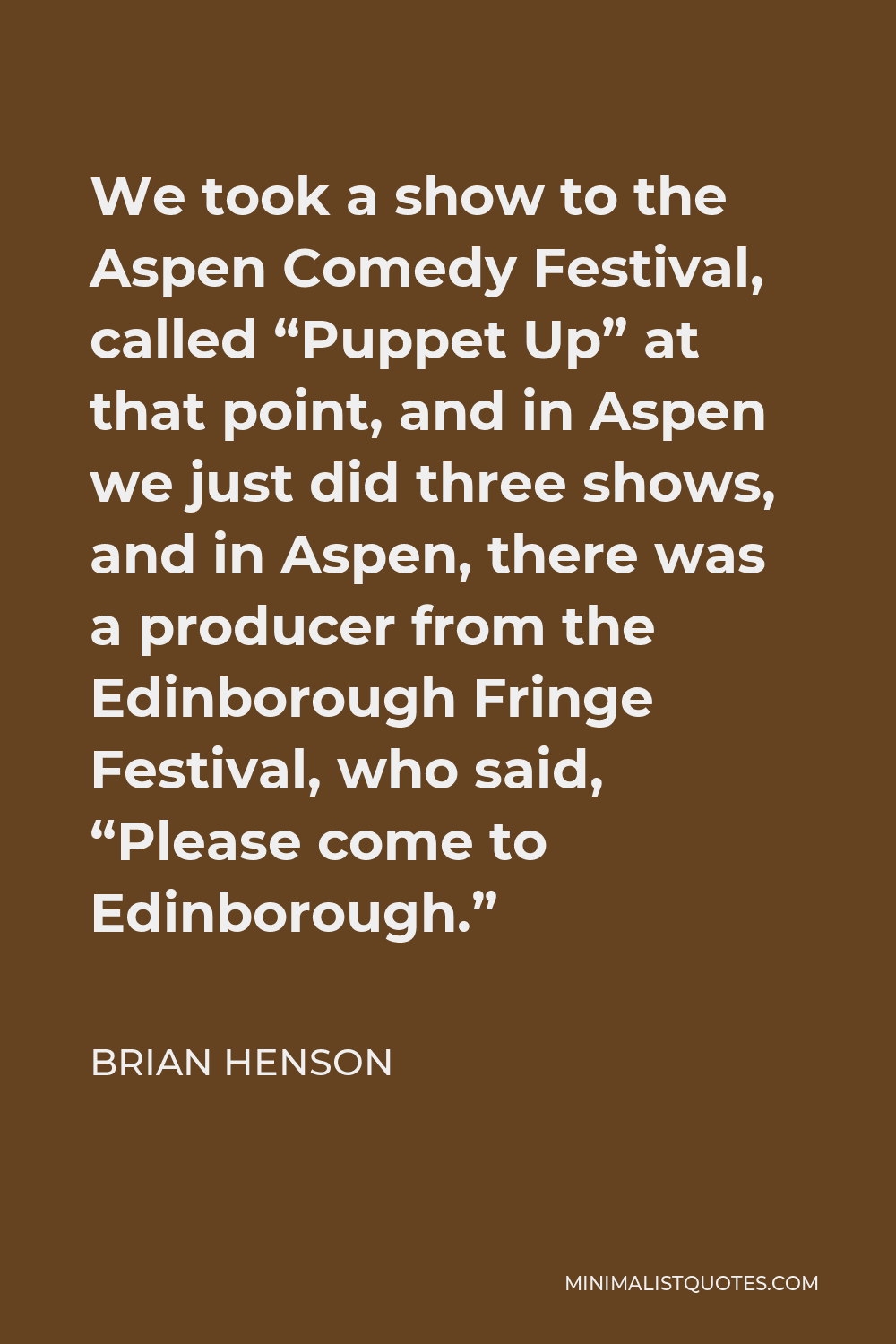he puppeteers really responded to it. Patrick Bistrow really responded to it, it’s great fun to do improve comedy with puppets.
BRIAN HENSONWe took a show to the Aspen Comedy Festival, called “Puppet Up” at that point, and in Aspen we just did three shows, and in Aspen, there was a producer from the Edinborough Fringe Festival, who said, “Please come to Edinborough.”
More Brian Henson Quotes
-





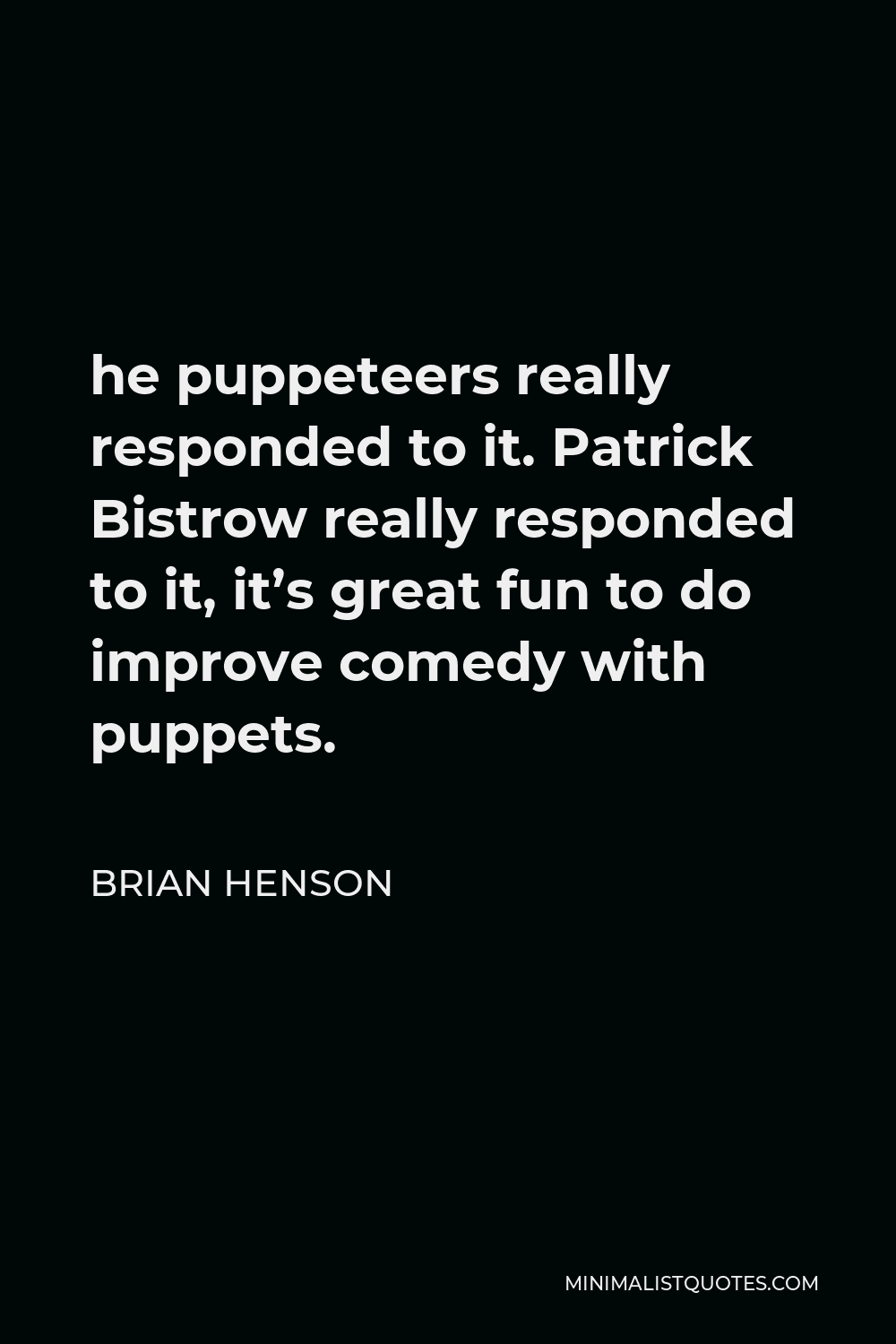
-





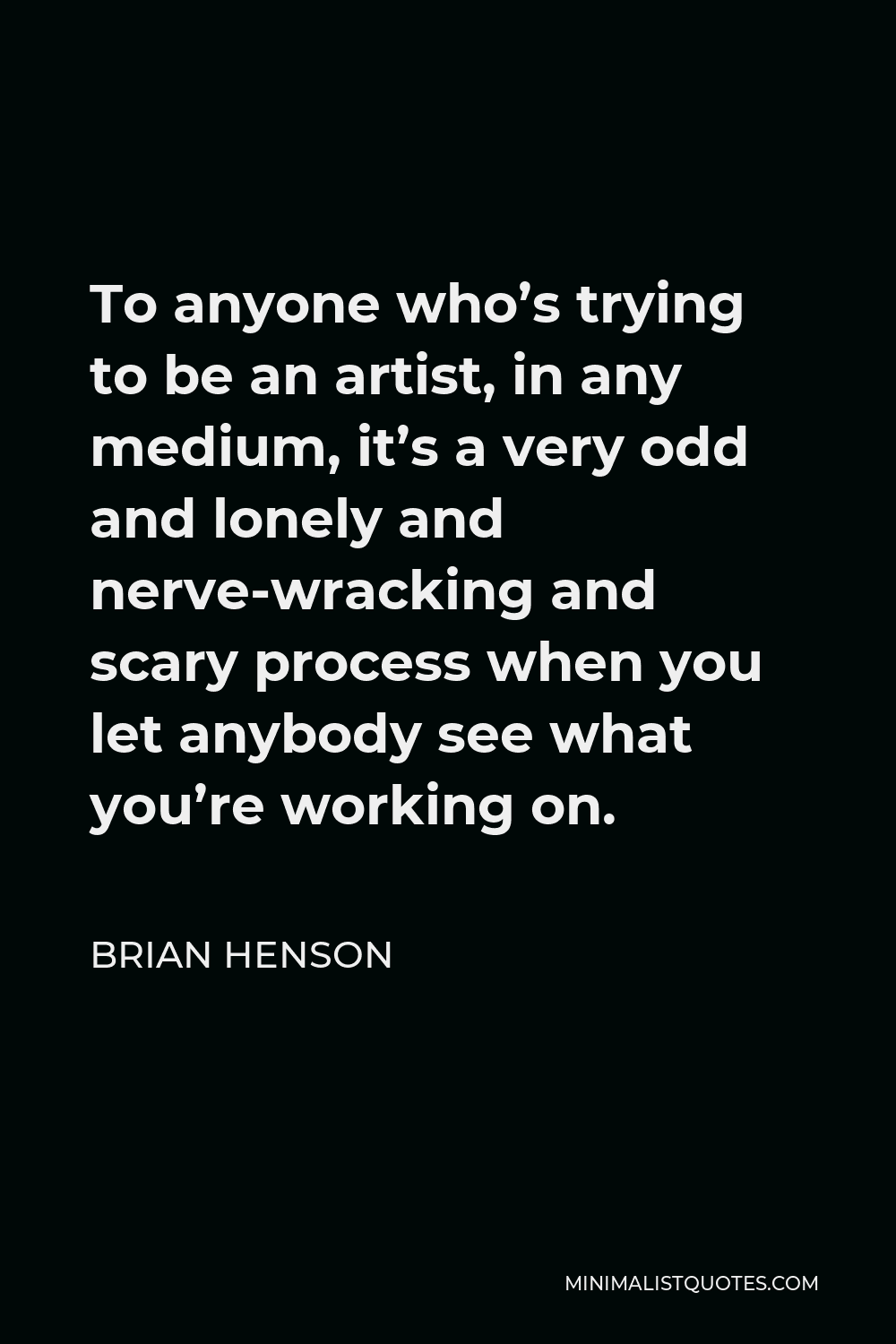
To anyone who’s trying to be an artist, in any medium, it’s a very odd and lonely and nerve-wracking and scary process when you let anybody see what you’re working on.
BRIAN HENSON -





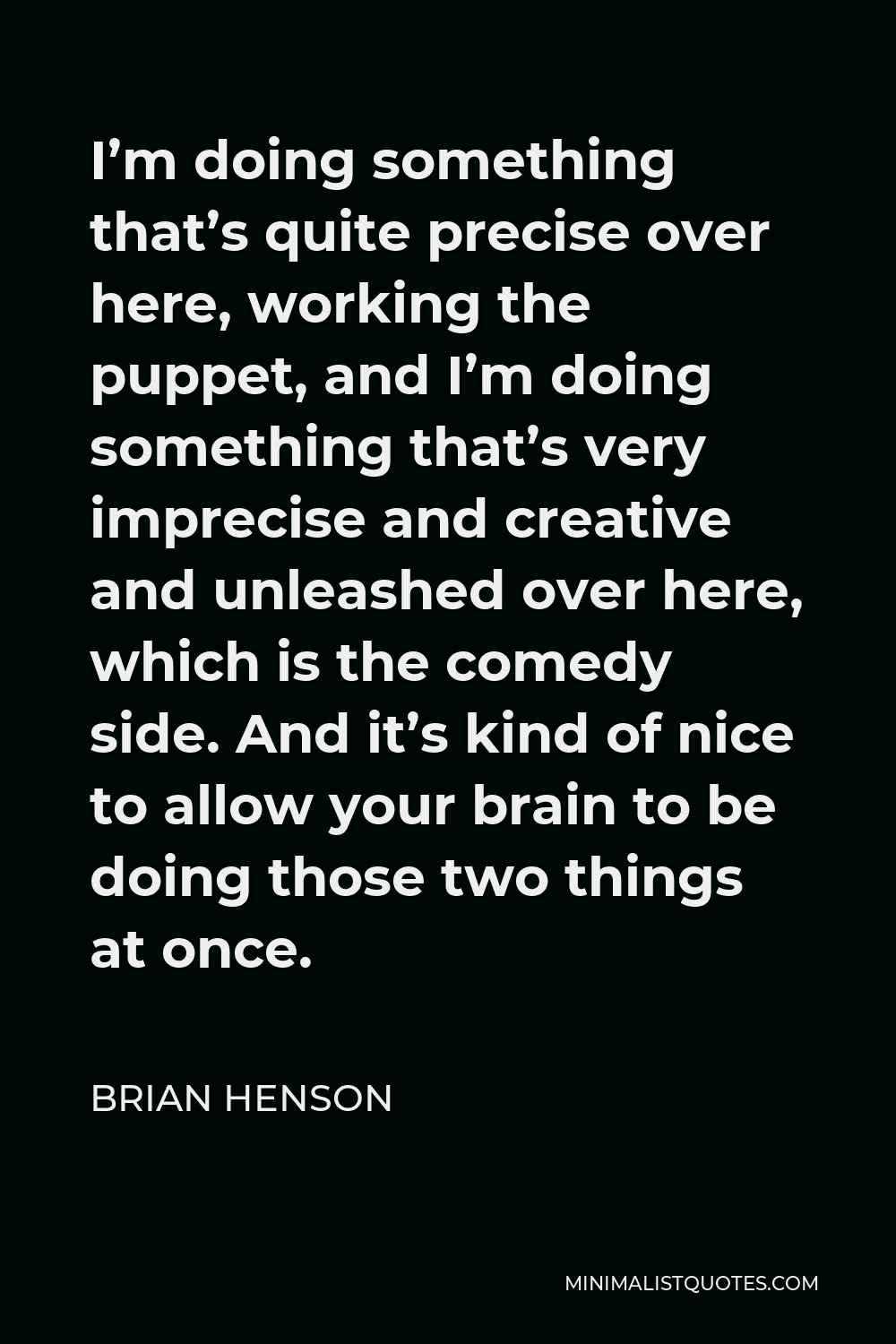
I’m doing something that’s quite precise over here, working the puppet, and I’m doing something that’s very imprecise and creative and unleashed over here, which is the comedy side. And it’s kind of nice to allow your brain to be doing those two things at once.
BRIAN HENSON -





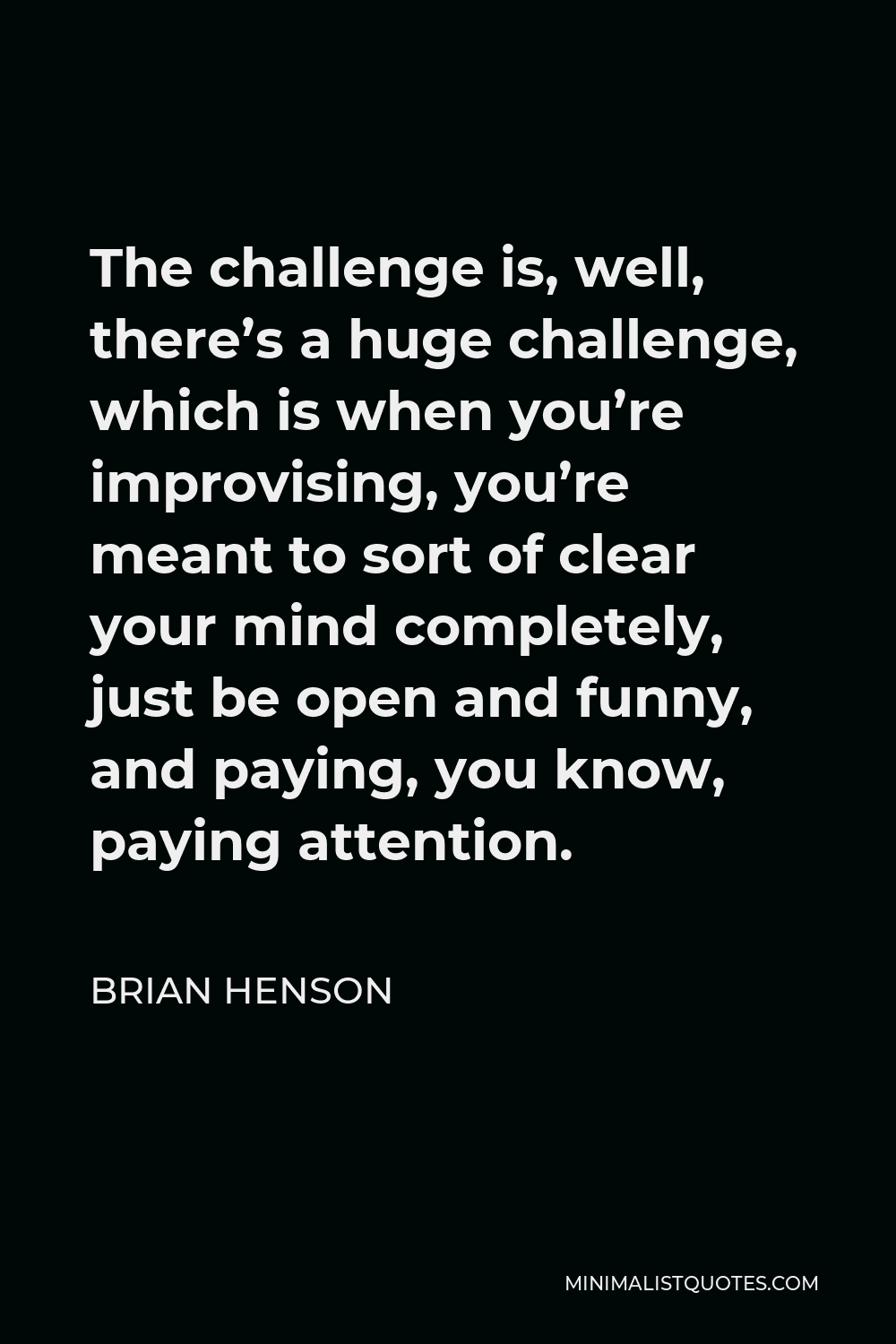
The challenge is, well, there’s a huge challenge, which is when you’re improvising, you’re meant to sort of clear your mind completely, just be open and funny, and paying, you know, paying attention.
BRIAN HENSON -





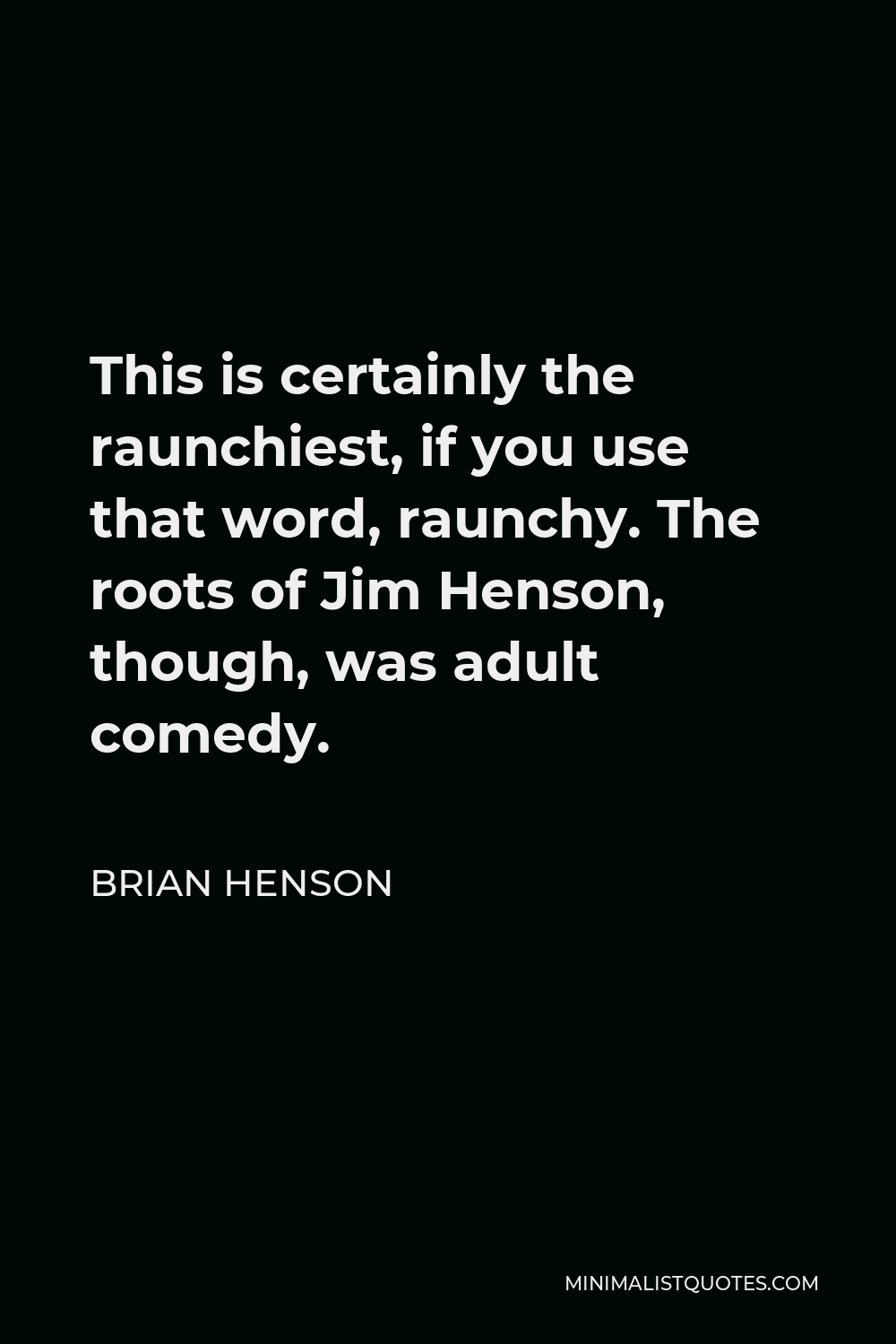
This is certainly the raunchiest, if you use that word, raunchy. The roots of Jim Henson, though, was adult comedy.
BRIAN HENSON -





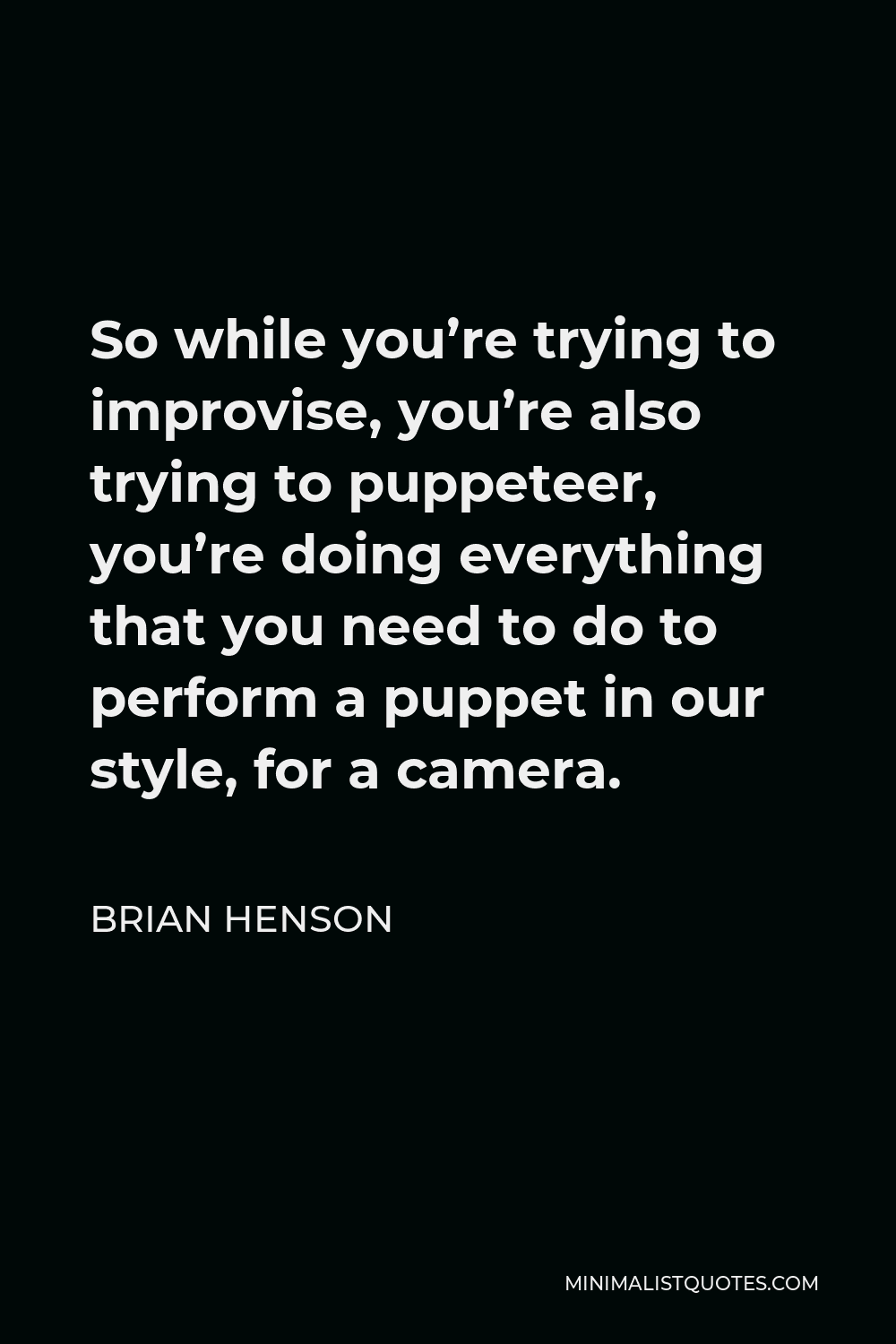
So while you’re trying to improvise, you’re also trying to puppeteer, you’re doing everything that you need to do to perform a puppet in our style, for a camera.
BRIAN HENSON -





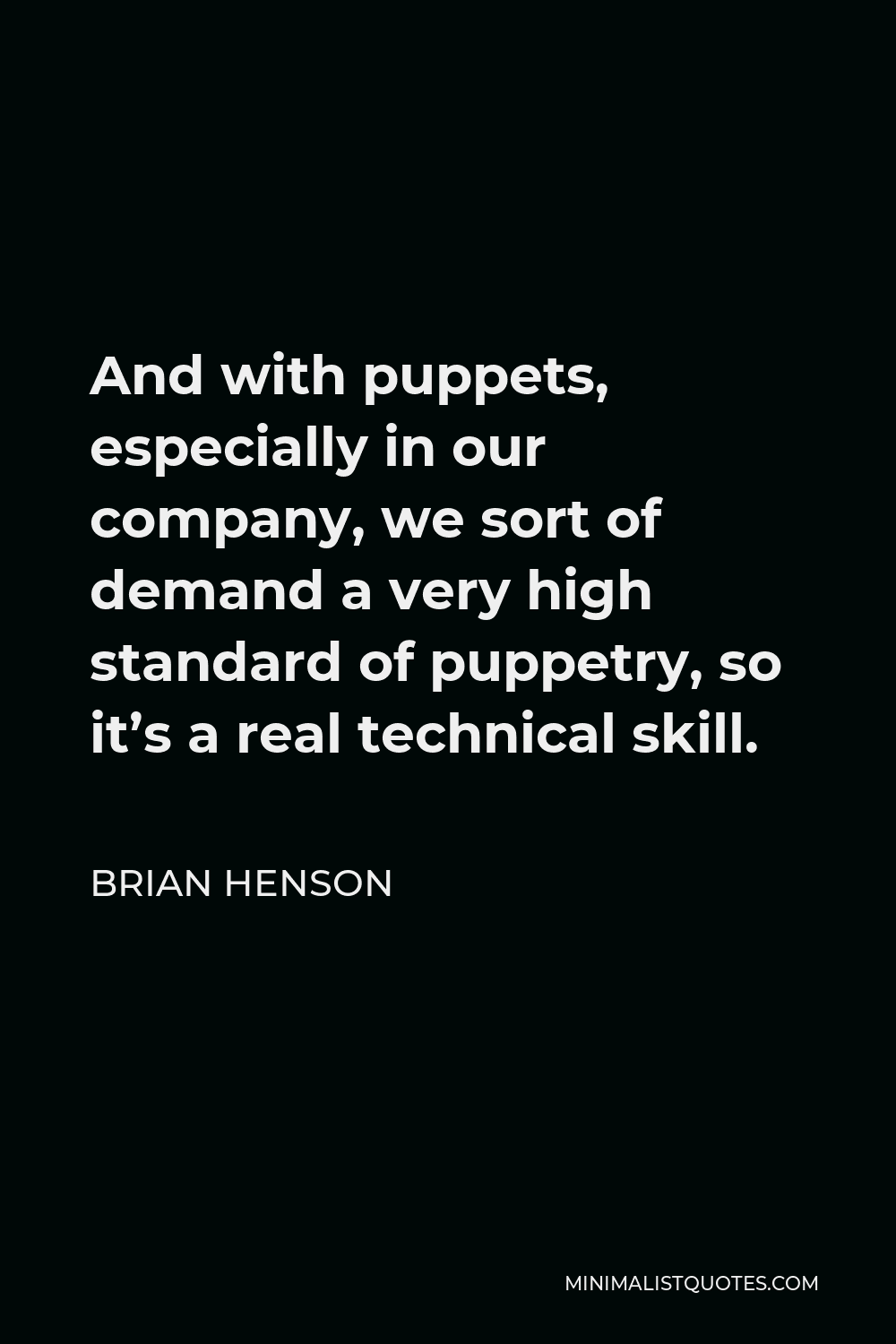
And with puppets, especially in our company, we sort of demand a very high standard of puppetry, so it’s a real technical skill.
BRIAN HENSON -





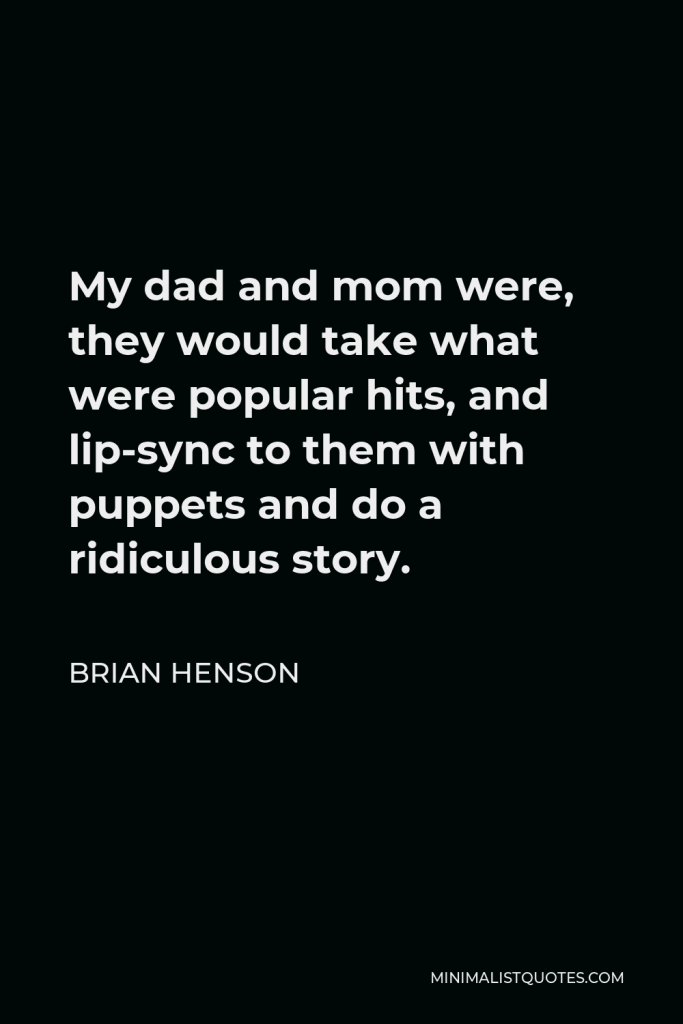

My dad and mom were, they would take what were popular hits, and lip-sync to them with puppets and do a ridiculous story.
BRIAN HENSON -





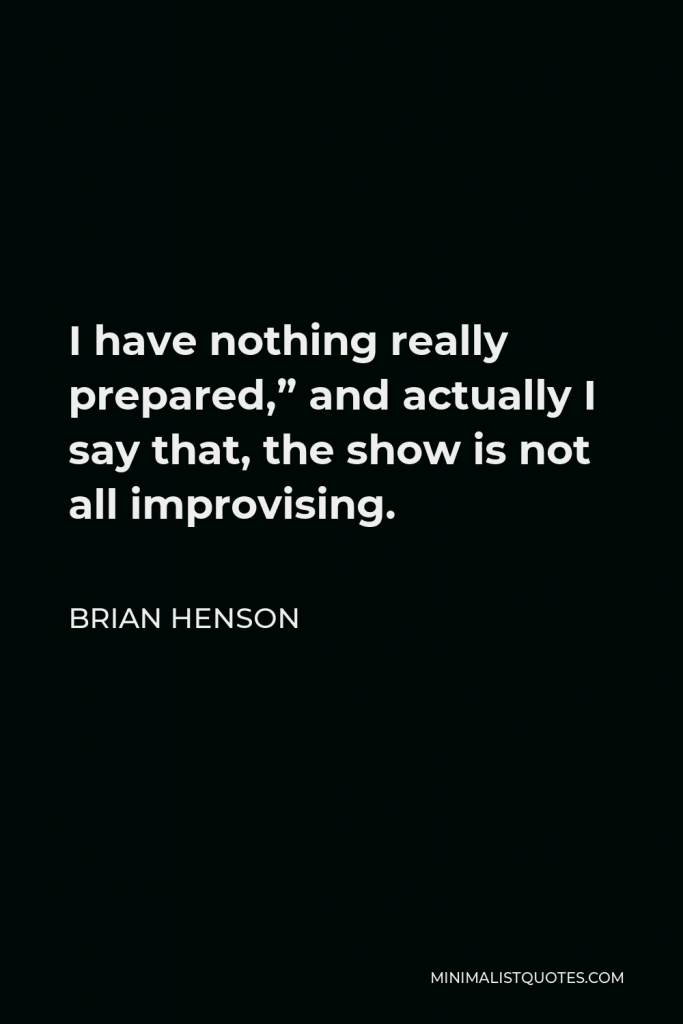

I have nothing really prepared,” and actually I say that, the show is not all improvising.
BRIAN HENSON -





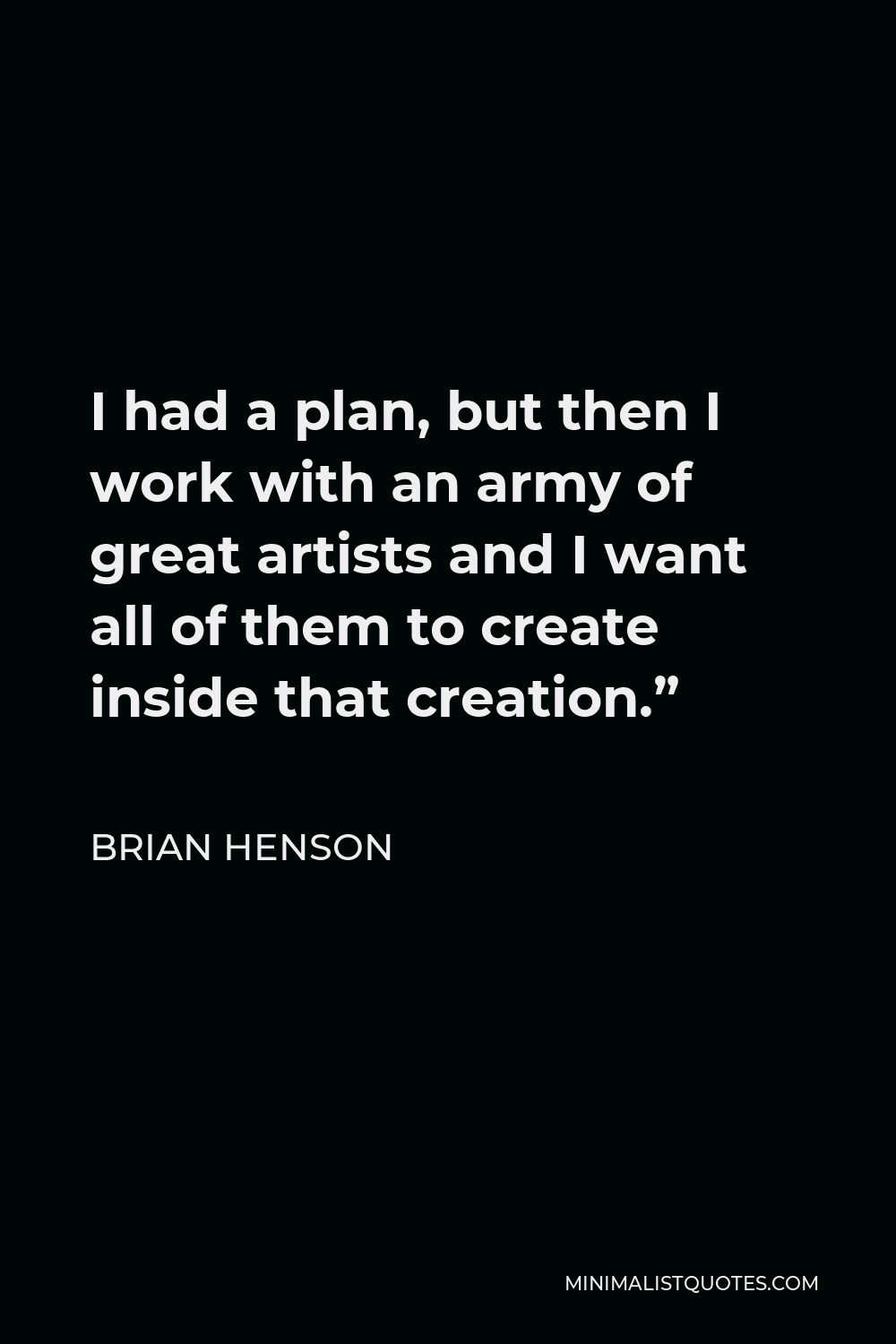
I had a plan, but then I work with an army of great artists and I want all of them to create inside that creation.”
BRIAN HENSON -





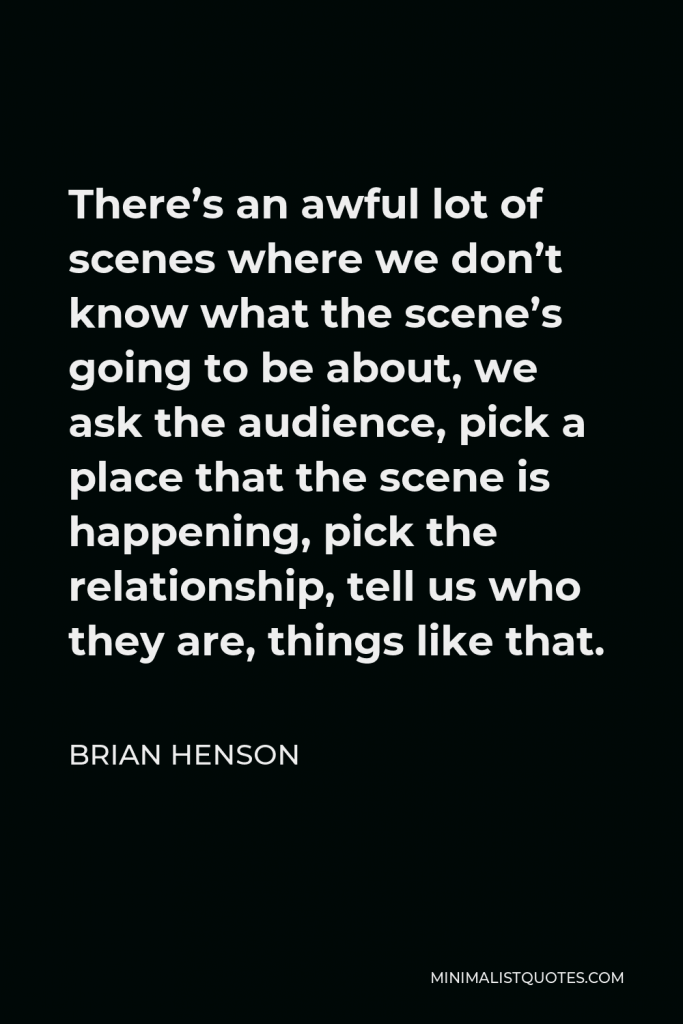

There’s an awful lot of scenes where we don’t know what the scene’s going to be about, we ask the audience, pick a place that the scene is happening, pick the relationship, tell us who they are, things like that.
BRIAN HENSON -





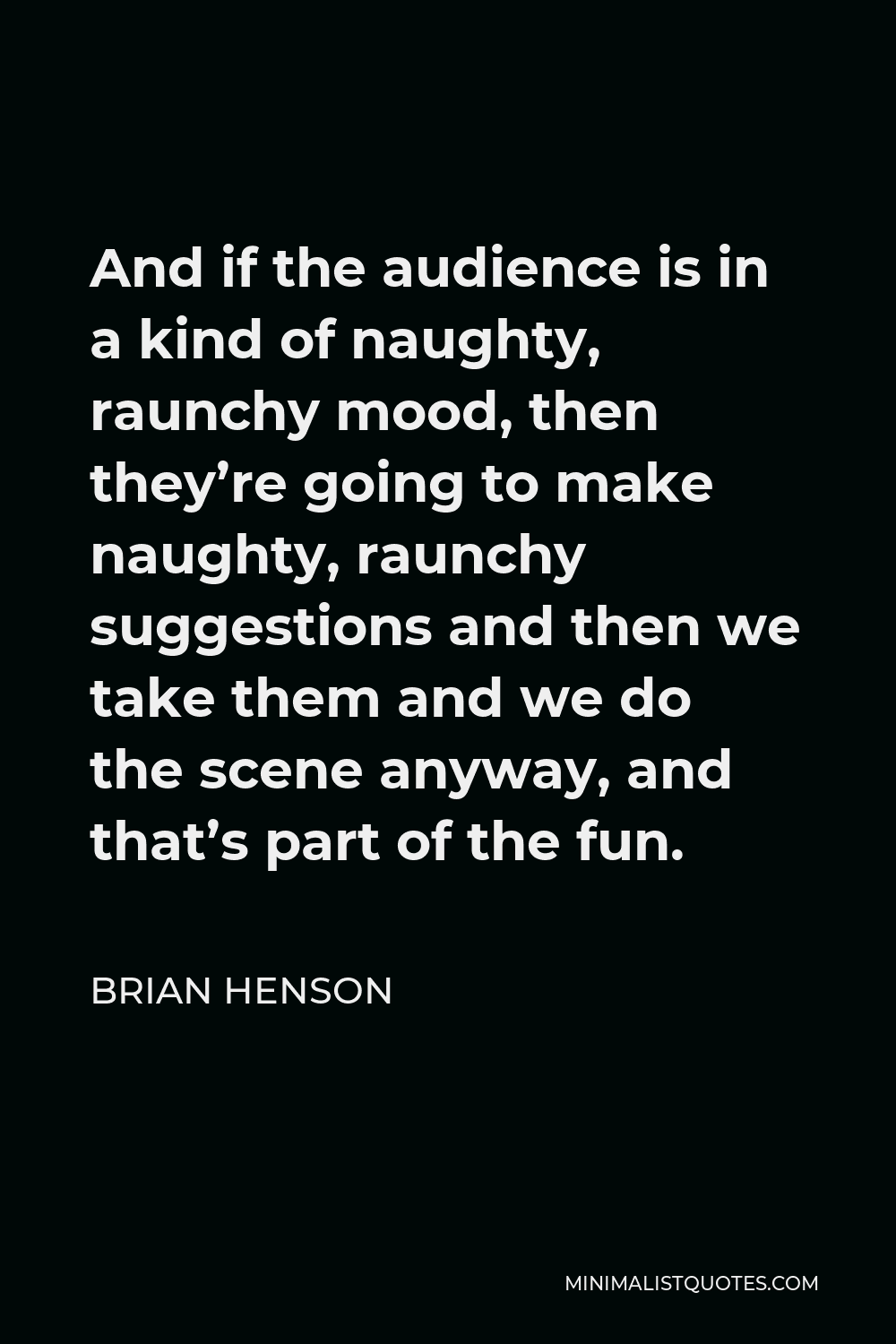
And if the audience is in a kind of naughty, raunchy mood, then they’re going to make naughty, raunchy suggestions and then we take them and we do the scene anyway, and that’s part of the fun.
BRIAN HENSON -





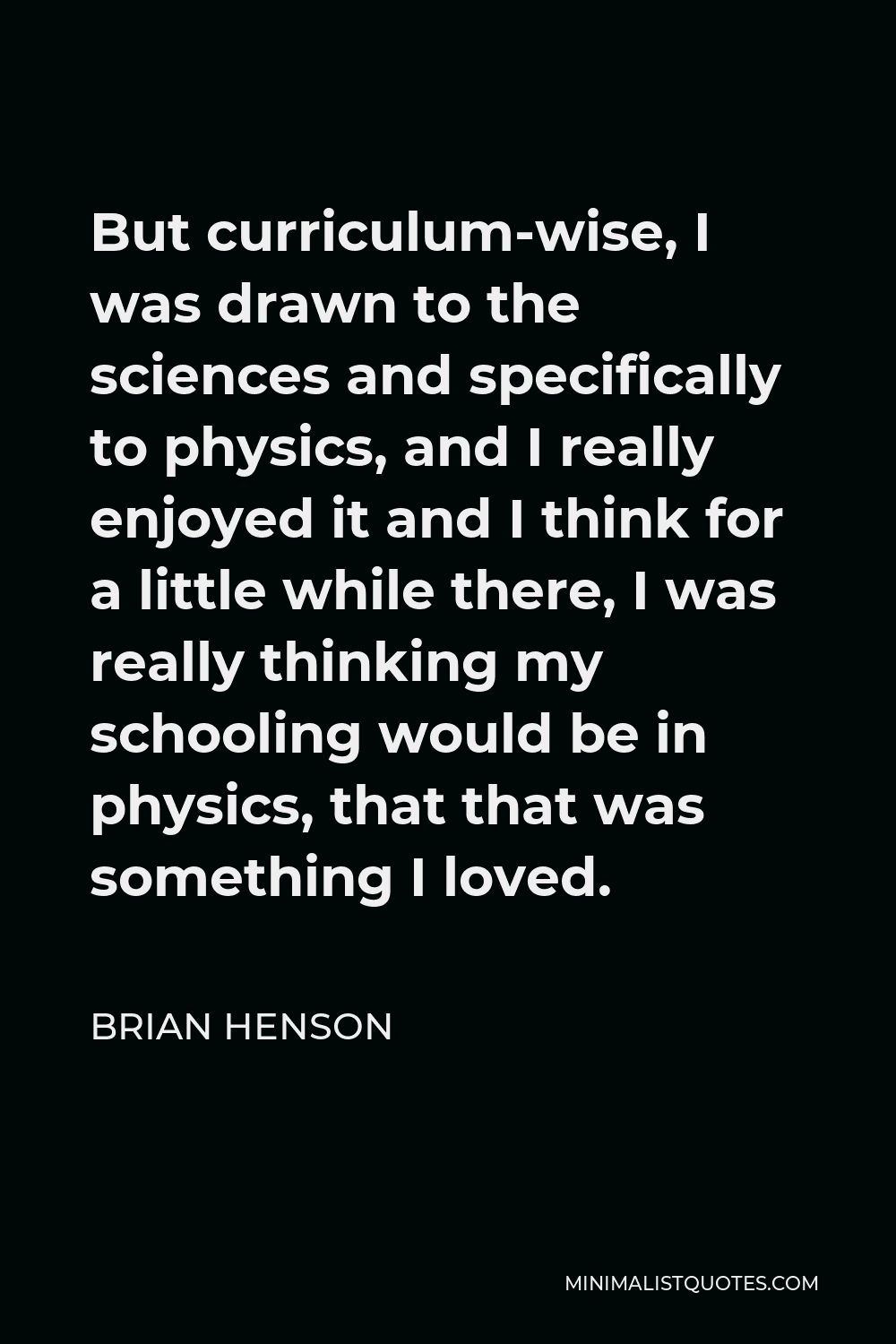
But curriculum-wise, I was drawn to the sciences and specifically to physics, and I really enjoyed it and I think for a little while there, I was really thinking my schooling would be in physics, that that was something I loved.
BRIAN HENSON -





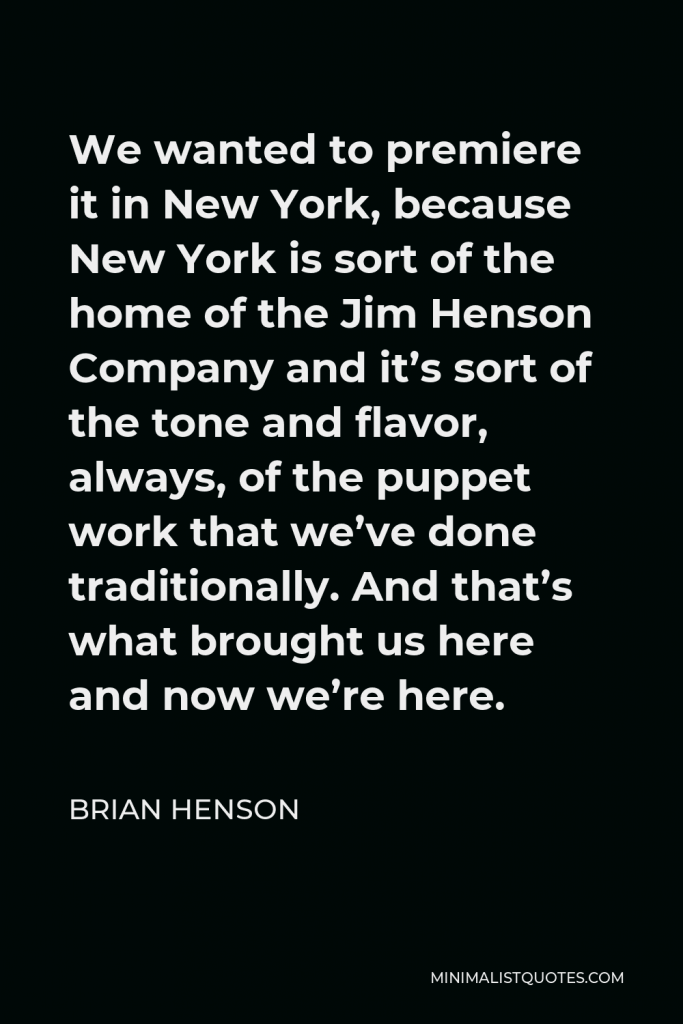

We wanted to premiere it in New York, because New York is sort of the home of the Jim Henson Company and it’s sort of the tone and flavor, always, of the puppet work that we’ve done traditionally. And that’s what brought us here and now we’re here.
BRIAN HENSON -





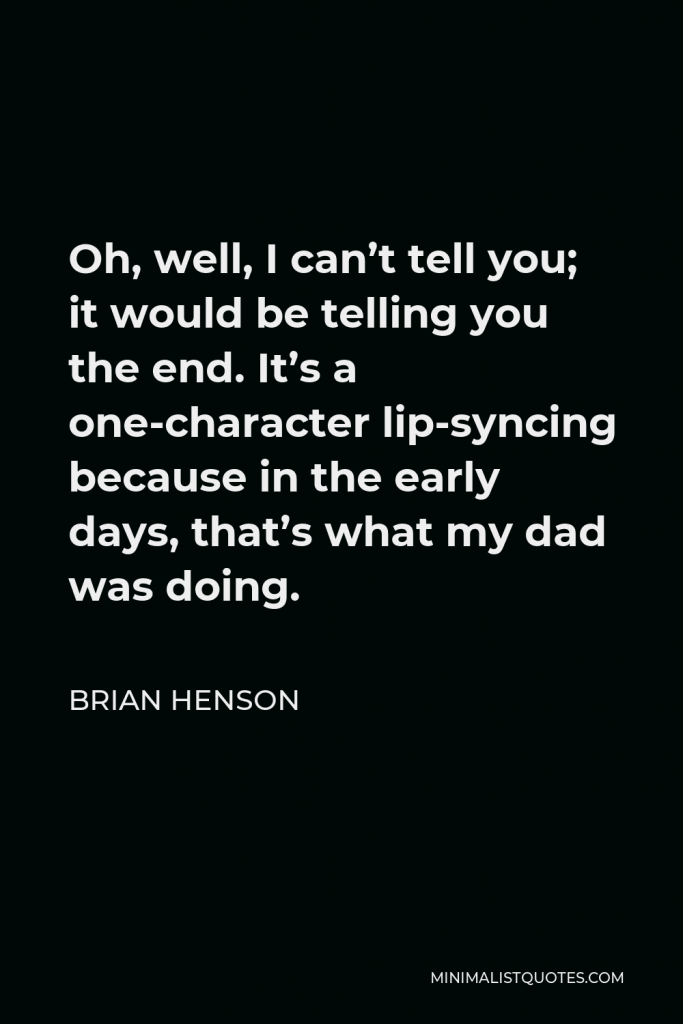

Oh, well, I can’t tell you; it would be telling you the end. It’s a one-character lip-syncing because in the early days, that’s what my dad was doing.
BRIAN HENSON -





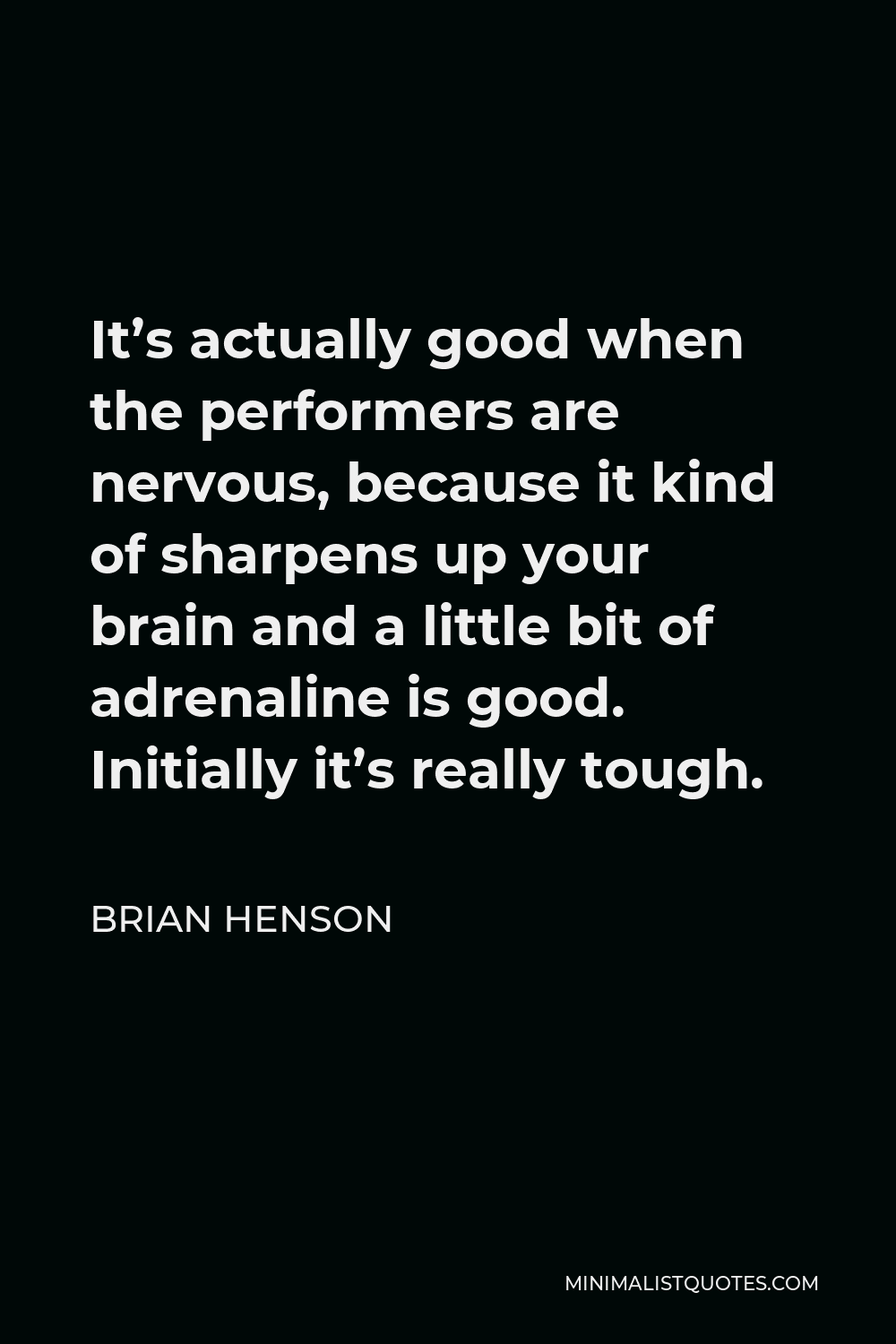
It’s actually good when the performers are nervous, because it kind of sharpens up your brain and a little bit of adrenaline is good. Initially it’s really tough.
BRIAN HENSON
